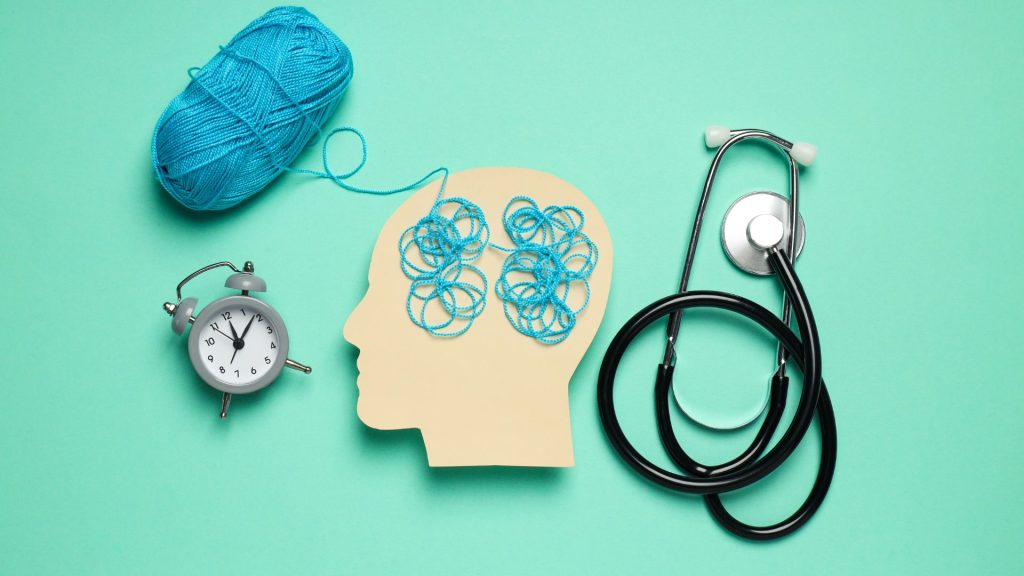
Necessary Nursing care 24/7: Your key to quality support under NDIS
Nursing Care for people with complex needs demands a holistic, 24-hour approach to ensure their safety, independence, and well-being. The National Disability Insurance Scheme can be life-changing support for Australians with disabilities. A wide array of services is offered under the NDIS, but one of the most important is 24/7 nursing care. It provides continuous medical assistance and attention to individuals with disabilities.
This blog focuses on benefits of 24/7 nursing care, who is eligible, what services are covered, and how you can get the care that you or your loved ones deserve. Together, let’s find the best support.
Why Nursing Care 24/7 is Important
It might bring certain medical challenges, some of which cannot be sorted out during ordinary working hours. It is very essential to have the continuous care of the person with grave medical conditions. Also, one’s health and quality of life depend upon it. Why there should be 24/7 nursing:
Immediate medical response Epilepsy, diabetes or respiratory disorders are all conditions that can cause an emergency requiring immediate action. A nurse on call around the clock can help to reduce the risk of long term health decline by responding quickly to unexpected complications.
Preventing Hospital Visits
A continued monitoring of your health will be able to highlight any medical complications early enough to prevent unnecessary hospitalizations and emergencies. It does not only promote health but also minimizes healthcare expenses.
Support to Families
Care provided around the clock gives some rest to family caregivers. This way, they would not burn out in trying to address the high-level needs of their loved ones.
Quality of Life
Continuous nursing care enables them to live independently in their homes in comfort, where it would not otherwise be possible.
The NDIS 24/7 Nursing care Program
The NDIS is not for everybody. It is designed to meet the reasonable needs of each participant. What you need to understand about eligibility includes:
Participant Status
To receive them, a person has to be an NDIS participant. This could usually be done by individuals who have permanent and significant disabilities.
Need for High Intensity Medical Care
This 24/7 nursing service is usually indicated for patients with complex medical conditions needing close monitoring and intervention.
Individualized Plans
The NDIS is a person-centered program. All funding, including for nursing care, has to be aligned with the NDIS plan of each participant. These plans detail specific health needs, and funding is approved according to them.
Innovative Technology that Enhances 24/7 Caring by Nurses
Innovative technologies have reflected on the changing art of providing nursing care, especially to those recipients benefiting from the National Disability Insurance Scheme. With innovative technologies such as telehealth and remote monitoring, 24/7 nursing services are gradually becoming more effective, accessible, and participant-focused. Such innovative tools optimize healthcare delivery and achieve better patient outcomes.
Let’s zoom in on the technologies that are changing nursing care 24/7:
Telehealth Services
Telehealth connects nurses with patients virtually through video chats, phone consultations, and even mobile apps. This can be very helpful for people with disabilities who cannot always make it to medical centers.
Telehealth for Improving 24/7 Care includes:
- Instant Accessibility to Experts: Patients can get specialist consultations in remote or rural areas.
- Convenience Participants: It is comfortable for them as they get to seek advice and insight in the comfort of their homes.
- Emergency Support In situations where there is an urgent issue outside of work hours, telehealth allows local nursing staff to send urgent concerns on to medical professionals.
A telehealth session will establish the need for intervention, for instance, a participant is experiencing unusual symptoms in the middle of the night. This would forestall the exacerbation of an otherwise bad situation into a perilous one.
Remote Monitoring Devices
This is a recent phenomenon as far as nursing care is concerned. These gadgets collect real-time health information for proactive and continued care.
Benefits of Remote Monitoring in 24/7 Care:
- Early Detection of Health Problems: Devices such as wearable monitors for heart rate, glucose sensors, or respiratory trackers alert the nurses to abnormalities immediately. This allows nurses to intervene quickly before the condition worsens.
- Personalized Data Monitoring systems can provide caregivers with valuable insight on the health trends for each participant. This allows them to make adjustments in treatment plans.
- Peace-of-Mind for Families. Consistent monitoring of vital signs is reassuring to know for families.
For participants with diabetes, for example, a continuous glucose monitor can be worn that sends their blood glucose levels directly to nursing staff. If those levels fall dangerously, the nurse will immediately notify you and take action.
Digital Health Records
The other names for digital health records are electronic health records and EHRs. They consolidate a patient’s entire medical record into one database.
- Seamless communication: All the healthcare providers, such as doctors, nurses and others, can update and access the records at any time. This keeps them all on the exact same page.
- EHRs are accurate documents that rule out the errors that might occur with manual charting. They ensure documentation of all medications, treatments, and procedures.
- Better Care Continuity : EHRs allow the participants to have continuity from one caregiver to another, or between settings, without disrupting the flow. This limits the possibility of mismanagement.
Having his or her health data available will ensure that when a participant receives 24/7 nursing care, each nurse in the team is informed of the participant’s condition, treatment protocols, and ongoing treatments.
Assistive Technology
Assistive technology is another innovation supporting NDIS participants; these range from adaptive devices and automated systems to assistive software.
Automatic Medication Dispensers reduce reliance on memory and manual intervention by prompting timely dispensing. Smart Home Integrations provide a better control on the participant’s ambient living environment in terms of manipulating the room temperature, adjusting lighting, or even accessing communications tools-all possible to be controlled remotely by the nurse.
Speech Recognition devices allow participants with speech disorders to easily alert or explain what they need.
“Learn more on how assistive technology works here.”
Mobile Applications
Apps designed for healthcare bring transparency and ease of operation to both participants and the nursing staff. Apps are available that offer real-time communications, medication scheduling, and even management of NDIS plan goals.
Healthcare apps offer:
- Remind yourself of your daily medication or physical therapy.
- Easy access to personal health progress and information.
- In instances of non-urgent questions, nurses can communicate with their patients directly.
- Nurses can use the mobile apps to make their documentation easier and their handling of patients’ care more manageable during their extended shifts.
Benefits of Healthcare Technology to 24/7 Nursing Care
For Participants
- Improved Quality of Care: Advanced tools allow for more precise monitoring and intervention, thus better outcomes.
- More Independence: Technologies enable participants to manage many aspects of their care and foster a sense of autonomy.
- Enhanced Safety: Remote monitoring and smart devices provide constant supervision even when the nurse is not around.
For Healthcare Providers
- Improved efficiency: Automation, streamlined workflows, and reduced administrative work allow nurses more time to focus on direct patient care.
- Reducing Errors Digital systems reduce human error through precise and current records.
- Preventive Care : With tools such as remote monitoring’s predictive analytics, nurses are able to address potential risks before they escalate into an emergency.
“Explore more about the role of technology in NDIS support.”
Services covered by 24/7 NDIS nursing care
NDIS nursing services go beyond just basics. There are all kinds of non-medical and medical services for participants with diverse needs. Some of our major services include the following:
- Medical Monitoring
The nurses can monitor health conditions, such as diabetes, hypertension, and epilepsy. Intervention can also be carried out by a nurse, including administration of injections and management of ventilators.
- Personal Care Assistance
People with disabilities may struggle to execute some of the key activities themselves, like bathing, dressing, or feeding. Caring assistance provided by a nurse allows people to remain dignified and independent. In this way, participants can stay independent as much as possible.
- Medication management
The nursing staff will assist in avoiding medication errors through managing complex regimens by helping participants take their medications on time.
- Chronic disease Management
Nurses will be able to also provide to victims of long-term sickness through the development of care plans which monitor symptoms and offer support.
- Rehabilitation Support
Nurses can assist participants in rehabilitation exercises, as they recover from surgery, injury or treatment and this will ensure a smooth recovery
- Palliative Care and end-of life care
NDIS provides the palliative support to needy participants in order for them to live with dignity and comfort in their last days.
NDIS framework supports holistic approach in providing nursing care services that are customised to meet the needs of participants. NDIS framework is flexible and individualised.
Step by Step Guide For Navigating Through NDIS
- Become an NDIS participant
To get into the NDIS services, apply for eligibility. You may apply for eligibility on the NDIS’ website or consult a local coordinator to do it for you. After eligibility is approved, developing an NDIS plan follows.
- Develop Your NDIS plan
A planner will help you identify your goals, needs, and funding. You might be asked to provide evidence-based documentation, like medical reports, proving that you require 24/7 nursing care.
- Find Service Providers
After the granting of funding for nursing services, the individual will have to source an NDIS-registered service provider to deliver 24/7 nursing service provisions. As a next step, ensure they are aligned with your needs and values.
“Learn more about the services provided by Us here“
- Implementation of Care Plan
Develop a roster of care with your provider: this is the most critical step in ensuring services are delivered seamlessly, whether within your home or supported environment.
- Monitor and Review
NDIS plans are reviewed yearly or, if your circumstances change, earlier. If you feel you need more nursing care, then you can request a change at review.
By following these steps, you will be guaranteed that your loved one gets the best nursing care or yourself, available through the NDIS.

Impact of 24-hour nursing care on quality of life
- Quality nursing spells a huge difference in the lives of people. The NDIS brings in different lives with their 24/7 nursing care.
- More independence: Since participants receive personalized assistance to stay in their own homes instead of moving to residential facilities, most often the feeling of independence is greater.
- Improved Overall Health: Continuum of care tends to mean that conditions are better managed with fewer complications and, overall, better well-being.
- Family Reassurance The knowledge that a nurse is available at all times can help alleviate some family stress. Relating to loved ones, instead of the tiring demands of caregiving can be done more effectively.
- More Social Participation Some health issues, when properly managed, can lead to increased participation in hobbies, social activities, and employment.
Investing in 24/7 care is investing in a brighter future wherein participants and their family members will finally have peace of mind and avenues for growth.
FAQs
What services are included in the NDIS 24/7 nursing?
NDIS Nursing Care 24/7 offers health monitoring, medication management, and personal care, among other medical services, which are customised for each participant.
Is it possible to get nursing care 24/7 at home?
Yes! Many participants receive 24/7 care in a home environment. The participant can stay in their comfort zone and receive excellent healthcare services.
How do I find a registered NDIS nurse?
You want to see providers who have experience with your condition, good reviews, and transparent pricing. You can research registered providers on the official website of NDIS or through trusted local networks.
What if my NDIS funding is not enough to pay for 24/7 care?
You can request a review of your plan if your circumstances change, or if you feel that your plan does not meet your needs. You should always provide the most recent medical evidence to support your claim.
Can family members of NDIS recipients receive support, too?
The focus of the NDIS is on the participant. It does recognize that family members are equally important and provides respite care and support to carers.
Conclusion
With the NDIS, access to nursing care is provided 24/7. It’s not just about health; it’s a lifeline. The care that one needs because of their disability may mean that support becomes essential to enable that person to lead a healthier and safer life. Knowing what is and is not included under the care criteria will be helpful to make full utilization of the eligibility and hence access care easily. Knowing how it works will definitely provide the best service to yourself or your loved ones.
Unveil how quality nursing care can revolutionize your life 24/7, no matter if it is nighttime, early dawn, or twilight.



